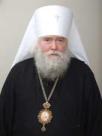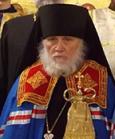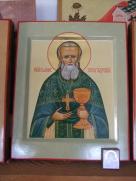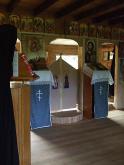Saturday, January 10, 2015
Upcoming children’s camp at Serbian Monastery
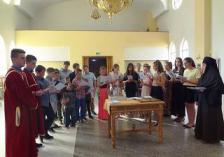 The traditional annual children’s camp at the Free Serbian Monastery of St Sava will take place from January 18 to 23. The camp is open for children aged 7 to 12 years old of all nationalities.
The traditional annual children’s camp at the Free Serbian Monastery of St Sava will take place from January 18 to 23. The camp is open for children aged 7 to 12 years old of all nationalities.
Please download a registration form here and return to the organisers as soon as possible.
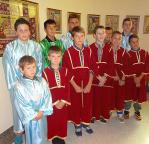 Lessons in the Law of God at the camp are given in English by Fr John Smelic (ROCA). There are short daily morning and evening services, which the children chant and read themselves. Accommodation is in separate girls’ and boys’ dorm houses on the grounds of the monastery. There is opportunity to play tennis, fish in the monastery lake, and an excursion. At the end of the camp, all the children take Confession and Holy Communion.
Lessons in the Law of God at the camp are given in English by Fr John Smelic (ROCA). There are short daily morning and evening services, which the children chant and read themselves. Accommodation is in separate girls’ and boys’ dorm houses on the grounds of the monastery. There is opportunity to play tennis, fish in the monastery lake, and an excursion. At the end of the camp, all the children take Confession and Holy Communion.
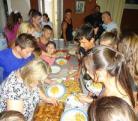 More information from Jela Bulatovic, who can be contacted on telephone 0402033834.
More information from Jela Bulatovic, who can be contacted on telephone 0402033834.
The St Sava Festival will take place at the monastery the weekend of 24-25 January, and is open for all pilgrims.
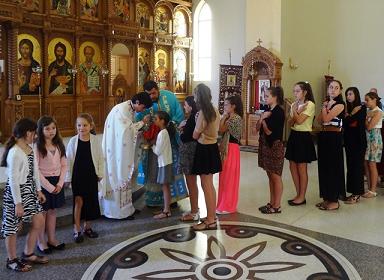
Saturday, December 6, 2014
To Fast or not To Fast? Fasting in a Western World
As you all know, the Nativity Fast has begun. Fasting is a time of deep contemplation of one’s sins and a spiritual battlefield against temptations of the world. Fasting is one of the main foundations of Orthodox Christianity and has been a staple component of Orthodox life. It is preached by all Christian priests and is a way for all Orthodox Christians to be closer to God.
As an Orthodox Christian, fasting was indoctrinated into me at a young age. My parents would always tell me the importance of fasting, and how it strengthens our soul and as Christians, it is essential to give up foods such as chocolate or meat for a few weeks, in order not to be tempted by worldly possessions. However, my parents went the extra mile. During fasting, we would stop watching television and listening to music. It might sound strange, but not watching television and listening to music brings a peace and calm to the household. I don’t feel as hyperactive as I do when being surrounded by the loud noises of music and TV. And I accepted it, just like that. It became part of my everyday routine, that I never questioned why we fast, or why I can’t have chocolate for seven weeks. It became a part of me and of who I am.
However, living in today’s society, fasting has become more of a challenge. Throughout my high school years, friends have invited me to parties during the fasting period and I’ve declined, telling them I was fasting. Then, they asked me why I fast and what’s so special about it. Even though I told them it was part of my religion and it helps me be closer to God, their reaction makes me somewhat ashamed of fasting. I feel as if I’m being judged by society for choosing to not eat meat or dairy. Moreover, I have succumbed to peer pressure and have broken the fast. I was at a friend’s birthday party at a restaurant, and I wasn’t tempted to break the fast. But then, when the birthday cake came out, my friends were pressuring me have a slice, even though I had politely said no to the offer. They kept insisting I had a slice, and I gave in. I was ashamed that I broke down so easily and wasn’t able to hold fast to my beliefs.
Though I do have friends that are understanding of my beliefs and respect my decisions, it’s still disheartening to be pressured into doing something that is against your character and who you are, more so when your friends are the ones pressuring you. It’s also a shame that nowadays, people – more specifically, young children – of Orthodox faith don’t partake in the fasting period. Some people make excuses in order not to fast, and they don’t feel ashamed that they are twisting one of the foundations of Christianity to suit their needs. Fasting is a strict commandment of the Orthodox Church and it must be obeyed. St Philaret of New York tells in one of his sermons that fasting is a ‘Church law’ and every Christian must adhere to it. He goes further to say that one who does not fast and disobeys the Church stops being a Christian. It is important that we, as Christians, should maintain one of the commandments of the Orthodox Church.
People might say that fasting is a struggle and difficult to commit to. Yes, it is a struggle, but a necessary one. Though it weakens our physical nature, it strengthens our spiritual nature, so that we will be ready to accompany God in Paradise.
Sophia Desiatov
Saturday, November 8, 2014
St Demetrius the Great-Martyr and Christian attitude to sensual pleasures
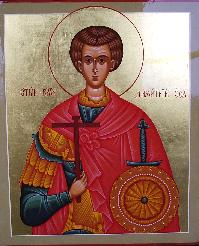 St Dimitri was a high-ranking official in Thessalonica. He not only cared for the people’s material well-being, but also taught them the Christian faith. This is why Emperor Maximian imprisoned him.
St Dimitri was a high-ranking official in Thessalonica. He not only cared for the people’s material well-being, but also taught them the Christian faith. This is why Emperor Maximian imprisoned him.
Emperor Maximian loved bodily and vain pleasures. He organised spectacles where Lyaeus, a giant, from a platform would throw innocent victims onto tightly-spaced, upright spears, so that they would be stabbed to death. However, a Christian youth, Nestor, was found who would deprive the Emperor of his favourite entertainment. It was Dimitri who blessed and encouraged this struggle, which culminated in Lyaeus the giant being killed by a weak teenager.
In the context of St Dimitri and St Nestor’s struggles, it is appropriate to ask ourselves: What is the Christian attitude to sensual pleasures?
a. The purpose of pleasures and entertainments is to give us an essential rest from work. Ever since the expulsion of man from paradise, hard work has been necessary.
..cursed is the ground for thy sake; in sorrow shalt thou eat of it all the days of thy life. Thorns also and thistles shall it bring forth to thee.
Genesis 3:17-18
Our work is usually associated with sweat and sorrows. The body requires rest to renew its strength, through food and sleep. The soul seeks to forget its sorrows and renew its powers in activities of a higher nature, such as art, which remind it of the perfection of Paradise. This is natural, or even essential, and therefore not to be condemned.
b. But before we give ourselves over to pleasures, we must ask ourselves, is our body and soul really exhausted from hard, but useful, important and unavoidable work? Should we allow it a deserved reward? Or is our life filled with boredom and heaviness of soul, the fruit of idleness rather than hard work? The Apostle says
…if any would not work, neither should he eat.
1 Thessalonians 3:10
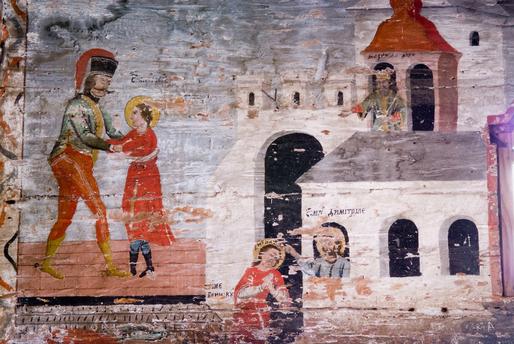
St Nestor defeats the giant Lyaeus. Bottom right: St Demetrius blessing St Nestor
c. Does the pleasure we propose strengthen us, and not, on the contrary, further exhaust our bodily powers? Will it lift up your soul, or will it weaken the mind? Will it enliven your heart with pure, deep and life-giving joy, making the soul ready and cheerful for work; good-tempered and patient in sorrows? If not, then it is better for the soul to deny itself such pleasure. The Apostle says:
All things are lawful for me, but all things are not expedient: all things are lawful for me, but all things edify not.
1 Corinthians 10:23
d. Will this pleasure distract us from some other, more important tasks? For example, our civil or spiritual duties? If it does, our pleasure is not only harmful, but directly criminal! If, when the Church calls him to glorification of God’s love and mercy, when She celebrates the greatest mysteries of our salvation, an Orthodox Christian spends his time in sensual pleasures, is this not an obvious disdain of the customs of the Church, and of God Himself? Such pleasure becomes a mockery of God, worthy of punishment.
e. However, the foremost danger in sensual pleasures is that they may bind our heart to themselves, becoming an inextricable need of our soul. They can deprive us of spiritual freedom, which a Christian must treasure more than everything. This freedom allows the Christian to be independent of everything earthly, so that he does not fear anything. He is the lord of his desires and feelings, the king of his internal world. Only this freedom allows him to conquer temptation. It is attainable by constant self-denial and patience, constant conquering of one’s own tendencies and cutting off one’s own will, and the ability to deny oneself in everything. If we always give in to our sensual desires, then we are submitting ourselves to pleasure, giving it power, and allowing it to become stronger, more demanding and persistent.
My brother Christians! Apart from the will of God, which governs us all, whatever else we are conquered by, leads to a shameful slavery for our God-like, reasonable and free soul. Giving in to fleshly pleasure and sinful passions is the same as selling ourselves as slaves to sin; may God save us from this.
Abridged from Protopriest G. Dyachenko: Full yearly cycle of short lessons.
26 October: St Demetrius, from the works of Demetrius of Cherson
Thursday, October 30, 2014
An Orthodox Teenager’s View of Halloween
By Sophia Desiatov
 As most of you are aware, Halloween is just right around the corner. It’s a time where children dress up as imaginary creatures and go around knocking on doors, hoping that their reward will be candy. Growing up, I was never allowed to participate in the tradition of dressing up and trick or treating. I remember my parents telling me that on this night, whenever a knock was heard, we weren’t allowed to open the door. I didn’t understand it at the time; I just thought Halloween was a universally accepted holiday, like Christmas or Easter. But now, I understand why my parents were so cautious about this one particular night. And I think it’s important that all Orthodox Christians – especially children – should understand the meaning behind Halloween.
As most of you are aware, Halloween is just right around the corner. It’s a time where children dress up as imaginary creatures and go around knocking on doors, hoping that their reward will be candy. Growing up, I was never allowed to participate in the tradition of dressing up and trick or treating. I remember my parents telling me that on this night, whenever a knock was heard, we weren’t allowed to open the door. I didn’t understand it at the time; I just thought Halloween was a universally accepted holiday, like Christmas or Easter. But now, I understand why my parents were so cautious about this one particular night. And I think it’s important that all Orthodox Christians – especially children – should understand the meaning behind Halloween.
Halloween, or All Hallows’ Eve, is a tradition that began in the pre-Christian times. The Celtic people, who were commonly pagans, believed that ‘life was born from death’. Thus, on the last day of October, they worshipped a deity called Samhain (pronounced sow-in), otherwise known as the Lord of death. On this night, sacrifices – animals or human – were made in order to appease Samhain, who in turn would lower the veil between the living and the dead, allowing the lost ones to be reunited the living for one night. The festival also included a bonfire of oak branches where the sacrifices were made and other rituals performed. Moreover, the custom of ‘trick or treat’ originated from people – in costume - visiting houses in exchange for food, so that the hunger of the dead would be satiated. If Samhain was not pleased with the offering, ‘tricks’ or curses would befall on those visitors.
It doesn’t sound very innocent, does it? The trouble with Halloween is that because of society, it has become heavily commoditised, shrouding the true meaning and covering it with money and profits. This makes it easier for children to see Halloween as a way to spend money and have fun, while ignoring the warnings. Fortunately, I haven’t experienced a traditional Halloween night, unlike the parades in Greenwich Village in the United States, and I don’t plan to. It feels wrong going against my belief in order to celebrate and revel in a night of darkness in order that a satanic deity could be appeased, all because everyone else around me is doing it.
That’s another problem with Halloween; it has become readily accepted by society, that it puts pressure on faithful Orthodox Christians to succumb to the temptation and darkness of Halloween. It puts pressure on Orthodox children to follow their peers’ footsteps, because to them, it’s ‘cool’. But we shouldn’t feel pressured to explain to our peers that we don’t celebrate Halloween because it goes against our faith. They should learn to embrace our values and respect our decisions, just as they expect us to respect their decisions.
Halloween is a pagan tradition that seeks to appease a satanic deity, and Orthodox Christians must learn to defend themselves against those who attempt to draw us into this celebration of evil.
Sophia Desiatov
Editor’s note: Orthodox Christians would do best to attend the All-night Vigil in honour of St John of Kronstadt on Friday night, rather than participate in pagan festivities!
Wednesday, October 29, 2014
On vulgarity
We live in a sea of vulgarity. Vulgarity is threatening to become a way of life. This explosion of vulgarity destroys the sanctity of life; it negates all that is holy, all that is beautiful, and all that is true.
We are experiencing an aesthetic and spiritual tragedy, wherein it appears that everything is yielding to the allure of vulgarity and immorality.
…by vulgar we mean a lack of nobility and discretion, a lack of decorum and modesty…. By vulgar we mean what is crude, offensive, coarse, indecent, and vile….
Our responsibility before God and history is enormous, since we, —the “earthen vessels”—have been called upon to preserve, by the Grace of God, human dignity.
Fight against the kingdom of vulgarity!
Read the rest of the sermon on avoiding vulgarity, by Metropolitan Cyprian of Oropos and Phyle
Wednesday, September 24, 2014
Secret sin, secret repentance, open slander, glory from God
This summarises the life of St Theodora of Alexandria.
Young Theodora was happily married, which upset the enemy of all good, the devil. He tempted a young man to fall in love with her. The young man was so desperate that he resorted to magic to seduce Theodora. The simple Theodora was tempted by the thought that if she sins during the night, God will not see the sin!
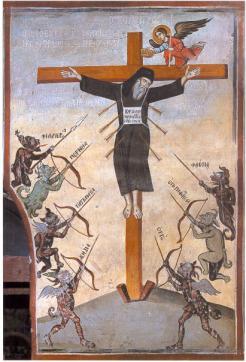 So, Theodora fell into adultery with the young man. Her conscience witnessed it all, and her heart felt no peace.
So, Theodora fell into adultery with the young man. Her conscience witnessed it all, and her heart felt no peace.
St Theodora fell into a second simple-hearted error: She thought God would never forgive her! Running to a wise Abbess she knew, she asked for advice. However, she did not confess her sin clearly, nor receive spiritual medicine from this wise doctor. Instead, she convinced herself that no forgiveness was available, that no healing could ever occur.
Theodora decided she must give up the world entirely and become a monastic in order to repent. So that her husband would not find her in one of the women’s convents, she cut her hair and changed into men’s clothing. She presented herself at the gate of a men’s monastery as “Theodore”, asking to be accepted. Her distressed husband searched, fearing that his beloved wife had left with another man…after several years, God answered his prayers and showed him his wife - but he did not recognise her.
Theodore went through many trials in the ascetic life. The brothers, incited by the enemy of God, quickly started to envy the young “brother”. Because of this they exposed her to unecessary dangers, sending her on errands where wild animals would be sure to attack her. Theodora remained safe, as she never doubted God. She also never exposed which brothers had caused her trouble, keeping her mind set on God and her body set on serving the brethren. Miracles even started to occur, which made her spiritual life evident to all.
…[someone] offended you; do not hate him but rather hate the offense and the demon who contrived the offense. If you hate the offender, you hate a person and transgress the commandment, and what he did in word you do in deed. But if you keep the the commandment, give proof of your love, and if you can in any way, help him so that he can be delivered from wickedness.
Christ does not want you to have hate for anyone, or grief, or anger, or resentment in any way at all or for any temporal reason whatsoever,. And this is thoroughly proclaimed in the four Gospels.
St Maximos the Confessor, 7th century
Finally, on an errand to the city, the devil constructed a sure trap. Monk Theodore did not make it home, and was forced to spend the night outside with his camels and goods. A girl, tempted by the devil, tried to seduce the “monk”, but he was not the least interested. She finally found another man among the travellers, and became pregnant.
 Soon, the girl’s outraged relatives came to the monastery, accusing the “monk” Theodore of raping her! Theodore was evicted from the monastery. When the baby was born, the relatives threw him into the monastery for upbringing, by the “adulterer himself”. Theodore accepted this new obedience just as he had previously accepted all other obediences, for the sake of God and his repentance. Seven years passed. Theodora’s skin was black from the rough conditions. She fed the baby with the work of her own hands. Everyone despised her as a great sinner.
Soon, the girl’s outraged relatives came to the monastery, accusing the “monk” Theodore of raping her! Theodore was evicted from the monastery. When the baby was born, the relatives threw him into the monastery for upbringing, by the “adulterer himself”. Theodore accepted this new obedience just as he had previously accepted all other obediences, for the sake of God and his repentance. Seven years passed. Theodora’s skin was black from the rough conditions. She fed the baby with the work of her own hands. Everyone despised her as a great sinner.
There is no hardship more oppressive to the soul than slander, whether one is slandered in his faith or in his conduct. And no one can disdain it except the one who like Susanna looks to God who alone can rescue in need, as he rescued her, and to reassure men, as he did in her case, and to encourage the soul with hope.
To the extent that you pray from your soul, for the one who spread scandal about you, God will reveal the truth to those who were told the scandal.
St Maximos the Confessor, 7th century
Theodora could have proved her innocence easily - simply by showing herself as a woman. But she did not - she chose to endure hardship, to prove her secret repentance before God for an old sin. Theodora knew well that it is the devil that tempts us - not our circumstances or the people around us:
There was a monk who, because of the great number of temptations said, “I will go away from here.” As he was putting on his sandals, he saw another man who was also putting on his sandals and the other monk said to him, “Is it on my account that you are going away? Because I go before you wherever you are going.”
Venerable Mother Theodora of Alexandria, 5th century
Theodora was by now very experienced in the spiritual life, having endured many kinds of temptation. She instructed her “son”:
Seek my child, the nobility of the soul, for it is truth; that of the body is false. Do not seek honour from men, for this injures one; but rather, seek heavenly glory…Thou art to be sympathetic with all the brethren and help them as much as possible; also thou are to minister unto them that are incapacitated or weak. Do not desire to live by another’s labour. Guard thy mind never to condemn something, whether it is good or bad. When thou art spoken to, lower thy face to the earth and then answer. Never ridicule anyone, especially when they are in misfortune. When thou wilt hear that a certain brother is disorderly, supplicate God to correct his life. Visit and help the sick, and serve the brethren as their servant…
Venerable Mother Theodora of Alexandria, 5th century
Then, “father Theodore” died. The child wailed inconsolably, and attracted the brothers to investigate what was happening. The abbot, in the meantime had a vision of the glory awaiting Theodora in heaven - which also revealed who she really was. An angel commanded him to bring the husband to the funeral. All the brothers shed tears, amazed at the spiritual strength of the Saint, and full of remorse for their previous judgements and false accusations.
The husband remained at the monastery and became an exemplary monk. The child later became a wise Superior of the same community.
And Saint Theodora from Heaven assists all those who struggle with the temptation of slander and false accusations, encouraging them to endure with God, for the salvation of their souls.
Blessed are ye when men shall persecute you, and shall say all manner of evil against you falsely for My sake. Rejoice and be exceedingly glad, for great is your reward in Heaven.
Mt.5:12
Friday, September 5, 2014
Orthodox family life: A beautiful memory
 I visited an Orthodox family a few years ago. Father, mother, and four teenage children welcomed me so warmly that I felt I had become a part of their close-knit family. It seemed the word “stranger” did not exist for them. There was no awkwardness in their conversation, no pretense or vain show-off - instead, there was endless warmth and love. We conversed on topics of common interest. The lampadka remained lit in the corner of the room, where there were many icons and an analogion with books.
I visited an Orthodox family a few years ago. Father, mother, and four teenage children welcomed me so warmly that I felt I had become a part of their close-knit family. It seemed the word “stranger” did not exist for them. There was no awkwardness in their conversation, no pretense or vain show-off - instead, there was endless warmth and love. We conversed on topics of common interest. The lampadka remained lit in the corner of the room, where there were many icons and an analogion with books.
In the evening, the father suddenly said: “Prayers”! One of the daughters immediately ran to the various rooms to fetch her siblings. One by one they came wandering into the common room, while the father started:
Through the prayers of our holy fathers, Lord Jesus Christ our God, have mercy on us! Glory to Thee o God, glory to Thee….O Heavenly King, Comforter, Spirit of Truth, Who art everywhere present and fillest all things…
Soon one of the girls took over. Mother had piously covered her head with a scarf. The youngest girl ended the evening prayers, and then the family broke out in song with the troparions to all their patron saints and the saint of their parish church. They were not great singers, but they knew all the words - speaking to the saints as to their extended family!
After these ten minutes, all quickly helped prepare an evening snack, over which we continued our conversations. The girls soon wandered off to their rooms to continue their girls’ activities and their homework, perhaps? School morning tomorrow…!
![]() To my astonishment, at six o’clock in the morning, the scene repeated itself. “Prayers! Come on, get up”, I could hear not far away from the guest room. A few minutes later, three girls, mother and father, and myself, still half-asleep, stood in front of the icons, and mother now started the prayers. The readers alternated, each knowing when it was her turn. The youngest daughter finally wandered in, still in her pyjamas…
To my astonishment, at six o’clock in the morning, the scene repeated itself. “Prayers! Come on, get up”, I could hear not far away from the guest room. A few minutes later, three girls, mother and father, and myself, still half-asleep, stood in front of the icons, and mother now started the prayers. The readers alternated, each knowing when it was her turn. The youngest daughter finally wandered in, still in her pyjamas…
Prayers were nearly finished. Father announced: “Reading from the Epistle of St Paul to the Corinthians!” and we listened to the Epistle and the Gospel readings for the day. The entire session took only 15 minutes - the readers knew these prayers, and had no need to go slow…
Father rushed off to work. I shared breakfast with more or less awake and enthusiastic children. One of the oldest turned to me to explain:
“It’s because our dad lived in a monastery for a while when he was young - we live sort of like in a monastery, with prayers every day. But we are used to it, I actually like it and can’t imagine living in a different way”
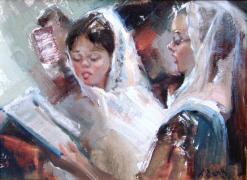 How blessed Orthodox family life can be!
How blessed Orthodox family life can be!
On Saturday night, we all went to church together for the evening service. The girls sang. Everyone had Confession. They then asked forgiveness of each other, for any unintended hurts that might have occurred.
Next morning, there were no common prayers at home, as all were off to church. The girls ran in and out of each others’ rooms, asking to borrow such-and-such a skirt and “the blue silk scarf, because it is a day for the Mother of God!”. We arrived at church nearly on time…
Time proved that this way of life was neither without fruit nor a forced exercise. All the children remained close to the Church, and they converted their future spouses to the holy Orthodox faith. They were used to fasts and feasts, prayer in Church and at home, and the Mysteries accompanying every important moment of their lives.
More on the place of the icon corner in an Orthodox home.
Monday, September 1, 2014
Why get married?
Why does the Holy Church place such importance on marriage?
It does so because marriage is a recipe for happiness in a sorrowful, fallen world:
Being connected by the ties of marriage we substitute for each other both hands and ears and legs. Marriage makes a weak one twice stronger, gives great joy to well-wishers and grief to ill-wishers. The common cares of the spouses make their griefs easier; common joys are more delightful for both of them. For the unanimous spouses riches are more pleasant, and in scarcity unanimity itself is more pleasant for them than riches. The ties of marriage serve them as the key to chastity and desire, as the seal of necessary affection. They drink from one source of their home, from which strangers do not drink and which flows nowhere and from nowhere. Being one flesh they have also one soul and with mutual love they equally motivate each other to be diligent to please God. Because marriage does not remove from God, but on the contrary it ties more to Him, because it has more motivations for it.
Saint Gregory the Theologian (4th century)
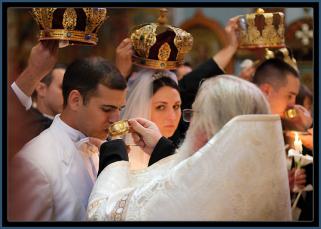 Is the great Mystery of marriage still relevant today?
Is the great Mystery of marriage still relevant today?
Society tells us it is not - claiming that living de-facto is “just as good”, and that “there is no hurry to marry”, indeed “what’s all the fuss about?”
The Holy Church has a different view. It sees marriage as a path to the Kingdom of Heaven. A path that is exalted, sober, and profound - completely different to secular, unbelieving modern life.
Surprisingly, even from a secular perspective, marriage appears advantageous, especially when a couple has children. Although the couple themselves may feel their love is firm and beautiful, it is illegal by God’s law…In essence, the couple are saying to God: “We don’t need You! We have enough with each other! What we have is beautiful, and You have no place with us. We do not require your blessing.”
Under the conditions of modern life, filled with vulgarity and moral decadence, a person must learn how to guard his spiritual health and develop an “antidote” against all kinds of fornication. Bishop Alexander of Mileant: Celibacy, Marriage or “free love”… Which way to choose?
A conscientious adult Orthodox Christian is obliged to be fruitful and committed through marriage, if he has not chosen to serve God as a monastic. For centuries, indeed, ever since the fall of Adam, the world is attacking God-pleasing practice mainly through the temptation of lust and lawlessness. We must be aware of this warfare, and prepare our response.
For an Orthodox Christian, the Sacrament of Marriage is all that is necessary to make the union of man and woman blessed before God. The wedding feast typically celebrated after the service is the optional part of getting married! Celebrations do not contribute in any way to the happiness or validity of the marriage… Not infrequently throughout the ages, couples found that no celebration were practically possible. This happened in times of war, poverty, famine, persecutions, or political unrest. Often the party celebration was completely omitted, to no detriment to the marriage (or the bank account!).
Ironically, today, many spend $50000-100000 on this non-essential part of the marriage, often postponing the crucial part (the solemn Mystery) indefinitely due to financial constraints! All the while, the poor couple often continues to sin before God, harming their potentially blessed and happy marriage relationship, and allowing their children to grow up in an atmosphere of sin…
If we are not willing to live according to the strict, but loving standards of the Church on this key point - then how can we claim to be Orthodox Christians?
Wednesday, July 23, 2014
A mother’s prayer
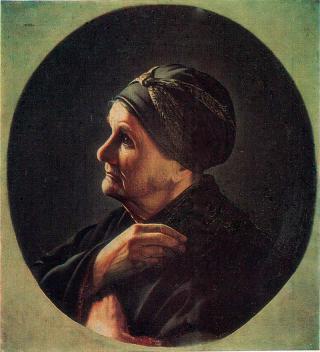 In 1942 I stayed overnight with a poor peasant family in a small village of the Solets region, which at that time was occupied by the German army.
In 1942 I stayed overnight with a poor peasant family in a small village of the Solets region, which at that time was occupied by the German army.
The hostess of the hut was old and ailing, but worked all day. That evening she told me about her sorrow. Four of her sons were at the front, in the Red Army. She missed them very much, and feared that she would never see them again. However, hoping in the endless mercy of the Lord, she prayed for them zealously every day.
That night I heard her Russian, motherly prayer.
I slept in the small room next to her. In the dark of the night, when her husband, the daughter-in-law and granddaughter were fast asleep, she knelt in front of the Kazan Mother of God icon, and started praying in a loud whisper.
I woke up and listened. I realised it was a prayer, and even without meaning to, I “listened in”. Every word was clearly audible. The meaning of the prayer was obvious. The praying woman’s religious mindset was flaming, pure, and deep.
Here is her prayer, nearly word for word. A prayer which impressed itself on my heart.
O Most-pure Mother, Theotokos, Most-Holy Sufferer, Virgin Mary. Hear me, the sinner, calm my motherly soul, fulfil my prayer and safekeep my children’s life – Dimitry, Alexey, Vasily and Ivan. Where are my poor little ones struggling now? Only You know, o Heavenly Queen. Save, keep and return them to me! If it is impossible to return them, then at least return two, or even just one, the youngest little one, Vaniushka. I don’t have anywhere to turn with my sorrow, except to You, o Mother of God…
You are a Mother too! You understand my motherly sorrow!
You also sorrowed and suffered, when You saw the sufferings of Your Son, Christ our God, on the Cross. What did Your soul not experience when they tortured Your Son, spat Him in the face, and beat Him with a stick on the head…?
My dear! John the Theologion lovingly took You into his home when You returned from Golgotha after the death of Your Son, Who was crucified on the Cross for us sinners…
But now we crucify Him again with our sins, we spit on His face again, and beat Him with a stick on the head again, and tear apart Your motherly heart!
The Lord was right…! He is right to punish the Russian people so harshly. He is calling us to repent and to be purified by sorrows.
We should carry our sorrows with patience and humility, in order to receive forgiveness, and lighten the sufferings of Your Son, and Your sufferings, Mother of God!
If I, the sinner, can do that, if even my sorrows are needful for You, Mistress, then accept them please, as a gift, o Queen of earth and Heaven. If it has to be that my children suffer, in order to redeem the sins of all our people, then take all my four sons….But pray to God for forgiveness for the Russian people, and have pity on all the mothers, who in their tears and motherly sorrows have forgotten about Your Motherly sorrows and Your tears, o Mother of God…!
I did not hear any more – I couldn’t listen any more to what this Russian mother whispered to the Mother of God, quieter and quieter…
My chest filled up with emotion, my heart with compunction, and I started to cry. The whispering on the other side of the wall stopped. Quiet sobbing was heard. The earthly mother prayed to the Heavenly Mother with wordless tears….
The sorrow was diluted into those tears, and imperceptibly turned into a quiet joy.
The black, sorrowful night came to its end, and a sweet, pink sunrise took its place.
In the morning, I reverently kissed the hand of this Russian mother.
She became confused - “what are you doing, Batiushka, what’s this” – and she kissed my hand in return, which I did not manage to pull away in time.
Her face was full of light, calm, clear, with holy eyes.
As she went outside, in an old and shabby coat, a young, clean-shaven and stylish German soldier passed by, and cast a disdainful glance at the poorly clad and beggarly Russian woman.
Then I remembered the words of our Russian poet, Tiutchev:
No understanding and no reverence
In the prideful look of the foreigner
For that which penetrates and mysteriously shines
Through your humble nakedness
Ivan Andreev
